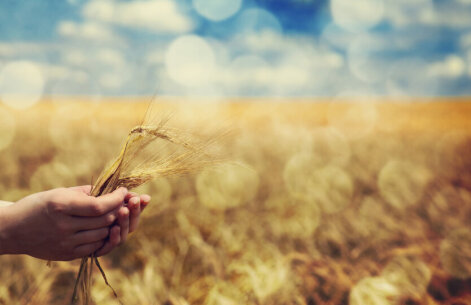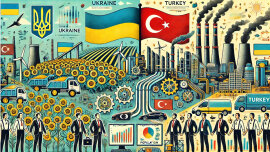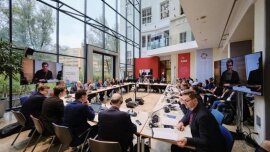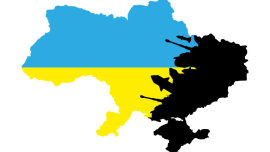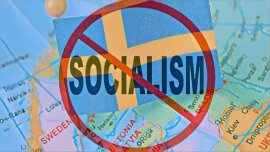While the logistics collapse continues on the western borders of Ukraine in order to export raw materials, other companies are already actively involved in creating added value.
A few examples from 2022:
- The first industrial producer of marbled pork appeared in Ukraine. KSG Agro plans to supply marbled pork to luxury stores of retail chains, where premium products are also presented.
- LLC "Buchachagrokhlibprom" (Ternopil region) plans to build a small meat processing enterprise for meat processing, in particular, the production of a canned meat. The company owns a farm for fattening steers, so the raw materials are available.
- Astarta almost doubled its revenue in January-June 2022. The revenue of the sugar production segment increased by 5%, and the revenue of the soybean processing segment for the first half of 2022 reached €53 million, which is 17% more compared to the same period last year.
There are not many such reports, but some enterprises do not announce diversification or are in the process of changes.
Is there support for the agricultural sector?
The share of agriculture in the GDP of Ukraine was the highest among all sectors of the economy and amounted to more than 10% in 2021. Agricultural products account for the largest share of Ukraine's total exports - about 41% per year. In general, the agricultural sector plays a key role in ensuring the well-being of 13 million rural residents.
Immediately, several players joined the financial support of agro.
USAID for Agrarian and Rural Development (AGRO) - the cost is USD 35 million. USA. Agronomic support is provided to 3,000 farmers/year of producers in 13 regions of the country - which were particularly affected by the war. The "Agriculture Resilience Initiative - AGRI" worth 100 million dollars was also launched, which should work on strengthening mechanisms for the export of Ukrainian agricultural products.
The state exempts goods used for the storage of grain and oil crops from import duty. A simplified procedure for registering agricultural machinery has been created. Certain changes have been made to the Land Code of Ukraine for agricultural land ( Law No. 2145-IX dated March 24, 2022). It is also possible to include "5-7-9% available loans", which expanded the State program of support for business entities - agricultural producers, but there are doubts about the reality of such support: obtaining a loan turned out to be a difficult option. For example, only those agrarians who are able to provide it and already have property in their possession: warehouses, equipment, deposits, etc., can get a loan. Instead, the majority of agricultural enterprises use the capacities of contractors or are engaged on lease terms.
The European Union helped with transport visa-free travel, which eliminates the need to obtain relevant permits on a permanent basis and will avoid stopping the export of Ukrainian products through road checkpoints. From June 29, Ukrainian carriers can carry out two-way transportation between Ukraine and the EU, transit transportation through the territories of EU countries, and travel through EU countries without an international driver's license. Also, until June 5, 2023, the import duty on Ukrainian goods to the countries of the European Union will be abolished (decisions of the European Parliament under No. 2022/870)
Support measures are good. But there is no main strategic plan for the modernization of the economy and a mechanism for the transition from the export of raw materials to their deep processing on the ground in the agricultural sector.
The decision to expand the opportunities of Ukrainian enterprises to process agricultural products is self-evident. Even before the war, logistical possibilities for the export of grain were unsatisfactory, and with the closure of ports and factories. It seems obvious not only to cancel the duty on polymer sleeves and bags for storing agricultural products, but also to give an answer to the question of what to do with what is stored next.
The most expedient way to increase both production and income is not to export raw materials, but to process them.
Where do we lose money?
Long-term supply contracts with a country at war are difficult to find. Significant risks in the form of high cost of logistics and difficulties with export also leave an imprint on almost all manufacturers. That is why it is advisable to discuss the transition from raw material export to its processing. After all, the more we focus on the export of raw materials, the less earnings we will receive.
- Apple concentrate. Domestic concentrate producers will have to work on the spot market. Forecasts vary, but given the declining quality of marketable apples, a large supply for processing is expected. The price of apples may also be high on the domestic market due to a decrease in imports from Poland.
- Starch processing makes it possible to obtain glucose, fructose, starch syrups and molasses.
- Beet molasses is the main raw material for yeast extract. Molasses processing is an option for increasing the efficiency of sugar industry enterprises.
- Corn, which the country grows in excess, can be processed into fuel. Scientists and specialists in the agricultural sector have long had information about such possibilities. Fuel ethanol from corn as a fuel additive significantly reduces CO2 emissions into the atmosphere, and its market is estimated at tens of billions of dollars at the global level.
- Rapeseed oil is an effective raw material for the production of biodiesel.
There are many methods of processing. Some of the given examples are taken from the agricultural portal , where experts periodically share their knowledge and experiences. An additional incentive of the recycling concept is waste-free production within one enterprise.
Production requires financing not only "from scratch", but also involves stimulating existing capacities, expanding their processing capabilities, moving factories closer to the EU. This will give a price advantage and a competitive edge in global markets.
Conclusions
Unfortunately, we have a low educational and developing potential of the industry. There are almost no educational and production projects that would reveal the practical aspects of the development of agro-processing, which is so necessary on this section of the road and contribute to the stable economic growth of agricultural enterprises of Ukraine.
Discussion of the current situation is critically needed. The nearest event in the field of agro and agrifood is planned for the end of this year, where business models and cases of creating added value in the industries: grain, fruits, vegetables, berries, niche crops, organics will be presented.
In order for high-tech enterprises to become a trend in the domestic market, it is necessary to look for new products , research markets, and adapt capacities to the new economic landscape.
The author is the founder, project manager of " Hard Skills "
